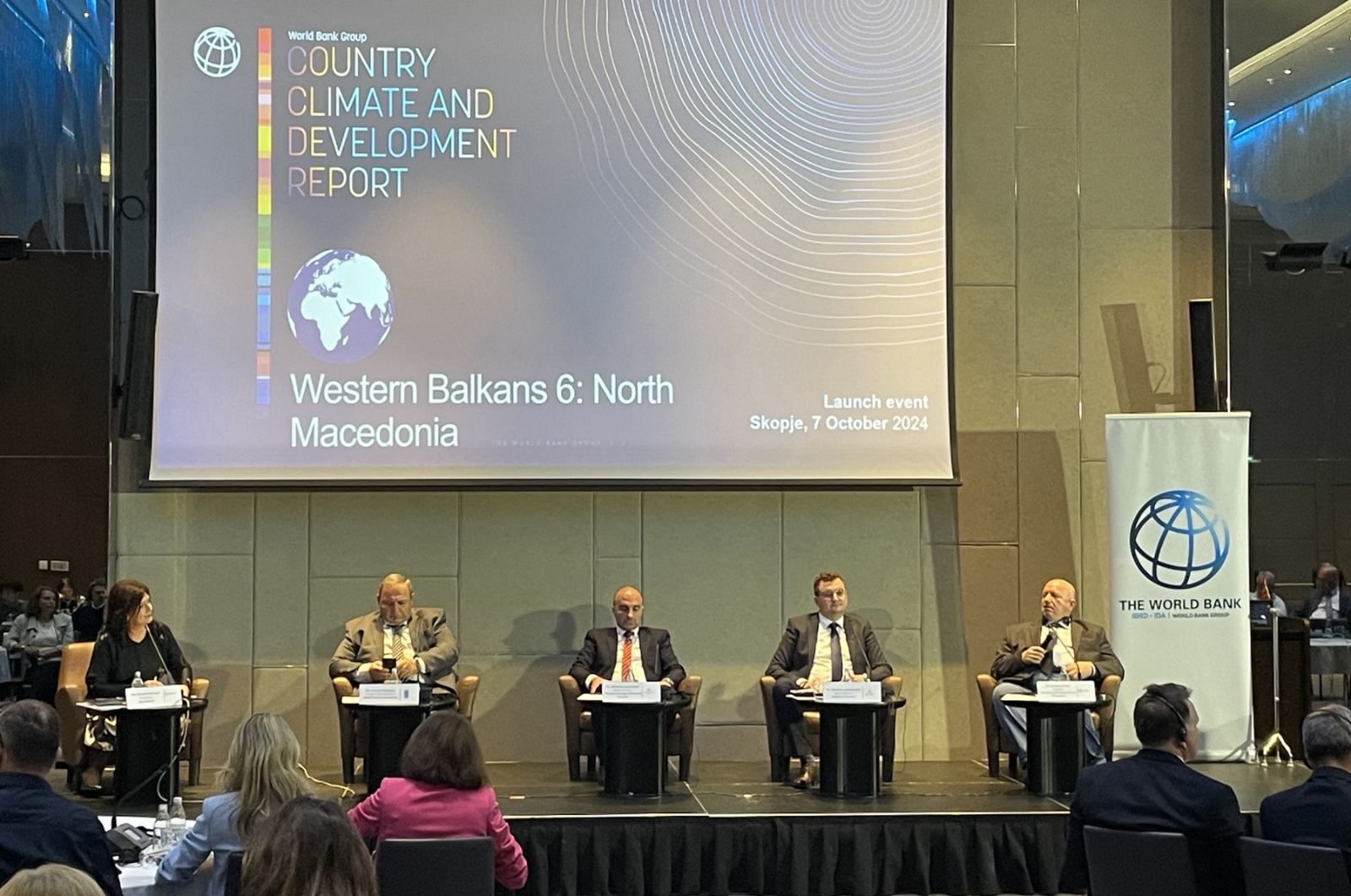„Dimitrie Cupovski“ 13, 1000 Skopje +38923244000 ic@mchamber.mk
„Dimitrie Cupovski“ 13, 1000 Skopje +38923244000 ic@mchamber.mk

The President of the Economic Chamber of North Macedonia, Branko Azeski, participated in a conference organized by the World Bank concerning the findings from two recently published reports, Country Climate Development Report: North Macedonia Country Compendium and North Macedonia Climate - Public Finance Review.
At the invitation by World Bank Director for Kosovo and North Macedonia Massimiliano Paolucci, Azeski joined a panel discussion with high representatives from the Ministry of Environment and Physical Planning, the Ministry of Energy, Mining, and Mineral Resources, as well as the EU Delegation in North Macedonia.
In his remarks, Azeski highlighted the need to identify opportunities for cooperation between science and business in the field of sustainable and green economy.
According to the Chamber President, the primary question is how to transform companies' challenges in implementing sustainable environmental standards into opportunities and potential growth.
“The green transformation is not a distant goal but a present opportunity and challenge for companies. We recognize that it’s time to take a proactive role in the green transition of our economies. Together, we can make the Western Balkans a region that is not only economically competitive but also ecologically stable and sustainable,” Azeski stressed.
During the discussion, he underscored the Chamber’s commitment to identifying areas for collaboration between science and business in sustainable and green economy fields, which would contribute to stronger cooperation and provide more technical, professional, and science-based services from the academic community to the business sector and companies.
According to the World Bank report, North Macedonia will need to invest $6.4 billion over the next decade to effectively protect people and property from the impacts of climate change.
“Natural disasters disproportionately impact vulnerable sectors, especially agriculture, where small family farms suffer from droughts and hail due to insufficient irrigation, hail protection, and insurance,” said Massimiliano Paolucci, World Bank Director for Kosovo and North Macedonia.